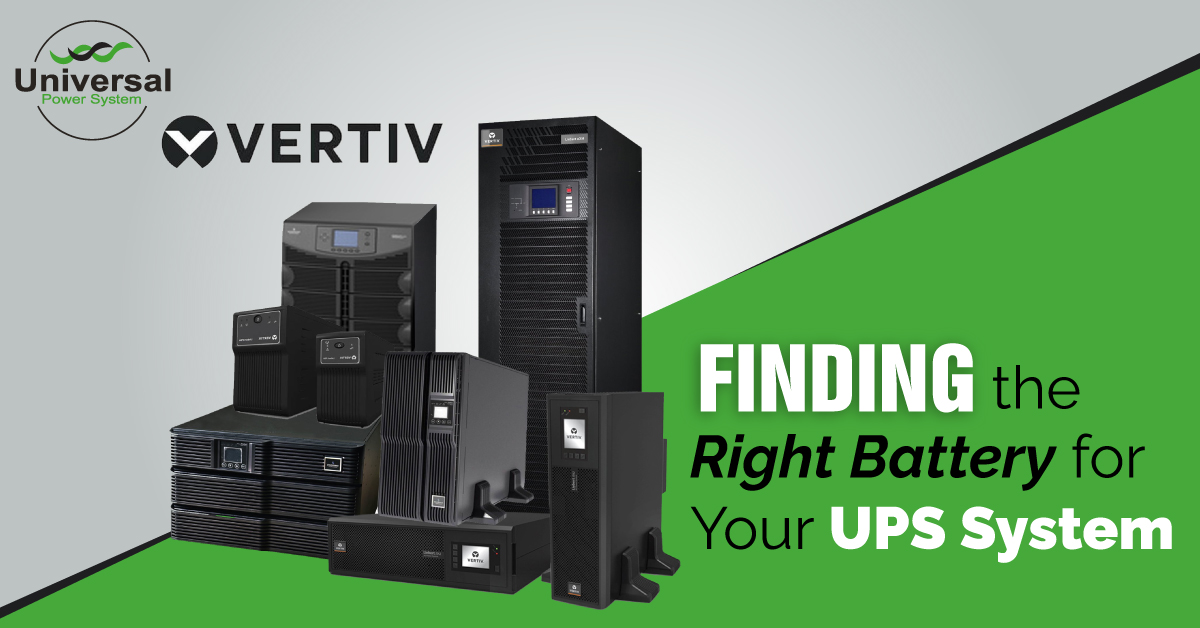
You might want to use an Uninterrupted Power Supply (UPS) system for more than one reason. This blog explains an uninterruptible power supply (UPS) and how to choose the best UPS battery for your needs. Let's start with the most important things!
Want some help? A UPS system is a battery backup power source for voltage surges, voltage sags, blackouts, etc. When the voltage from your power company drops too low or goes up too high, your UPS system will turn on and power the connected equipment with batteries. Putting in Vertiv ups service partner is like a hospital using a backup generator to power its most crucial equipment in case of a power outage.
Information Technology (IT) companies use computer rooms and data centers where commercial UPS systems are often used. Nuclear power plants and oil rigs are good examples of places that might need an industrial UPS system to control a critical process.
Electronics have ratings for both the most watts they can use and the most volt-amperes they can use. Neither rating can be gone over by the equipment that is attached. Watts measure how much actual power the equipment operates, while volt-amps result from multiplying the voltage applied to the equipment by the amount of current it uses.
Watt and VA ratings can differ for computers and UPS units, but VA ratings are always larger than watt ratings. The ratio of watts to VA is called the "power factor," and it can be written as a number (like -0.8) or a percentage (like -80%). The power factor is the most important thing to consider when choosing the right size UPS for your needs. In general, your UPS's Output Watt Capacity should be 20–25% higher than the total amount of power used by all the equipment you connect to it.
What you back up with your UPS depends on what you want to back up. Runtime is when a UPS can power the equipment it is connected to if the power goes out. The more equipment you plug into your UPS, the less time it will run for, so it's essential to ensure that only your most important equipment is getting backup power from your UPS.
UPS batteries, you guessed it, are used to power your UPS system in case of a power outage. UPS batteries typically fall into two categories: sealed valve regulated (VRLA) or lithium-ion.
Knowing which brands and models of UPS batteries will work with your system is essential before making a purchase. For instance, lithium-ion batteries' voltage requirements may exceed your existing machinery's capabilities.
When buying a UPS system to back up your most important work, servers, data, etc., you should choose the most reliable system with the lowest cost. VRLA batteries have been around for a long time and cost less than lithium-ion batteries.
A good thing about a VRLA battery is that its design keeps the electrolyte inside the battery, so it won't leak even if the case breaks. Another reason VRLA batteries are popular is that they don't need any extra water or electrolytes to work. This makes them "maintenance-free." On the other hand, if you use VRLA batteries, you must buy a third-party battery management system and replace the batteries every three to five years.
Even though lithium-ion batteries are more expensive, they are valve-regulated, lightweight, take up less space, have a smaller footprint, and only need to be replaced every 8–10 years. According to a Grand View Research report, the global lithium-ion batteries market was worth $53.6 billion in 2020 and is expected to grow by 19% by 2028.
When comparing the energy and power of lithium-ion and VRLA batteries, you need to look at the difference between energy cells and power cells. A power cell battery makes a lot of power in a short amount of time. On the other hand, an energy cell battery uses a small amount of control over a long period. Lithium-ion batteries are made to be both power cells and energy cells, while VRLA batteries are only energy cells. Understanding how your system uses power will help you figure out which UPS battery will work best for you.
An uninterruptible power supply (UPS) ensures that connected electronics always have power. A UPS will provide clean battery backup power and surge protection for sensitive equipment plugged in when the power goes out or goes above or below safe levels. You can trust on Universal Power System when you want to buy an UPS.